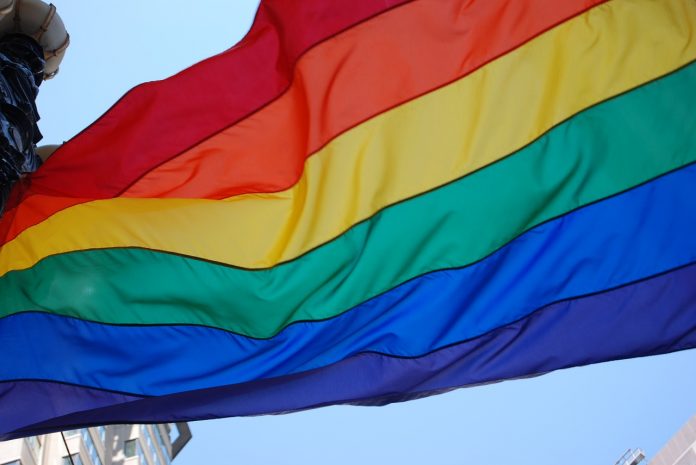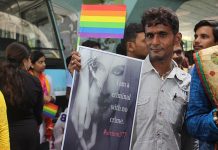This article is written by Anindita Deb and Kavana Rao, students of Symbiosis Law School, Noida. The objective of this article is to discuss the aspects of the Self-identification Bill, which recently had its second hearing in the Parliament of New Zealand.
Table of Contents
Introduction
The concept of gender self-identification, or ‘self-id,’ is that a person should be able to legally identify with the gender of their choice simply by declaring it, without having to undergo any medical examinations. As prejudice against trans individuals persists around the world, including in India, this has been a long-standing demand of trans-rights organizations. Many countries have formulated legislation and introduced Bills related to this issue, trying to create a more gender-inclusive society. Recently, New Zealand, known to have the world’s most “Rainbow Parliament” has taken a step forward in introducing a self-identification law that will make it easier for its citizens to change their gender on their birth certificates.
Background
New Zealand has one of the most inclusive parliaments it has ever had, with multiple people of colour, members from the LGBTQ communities, and a large number of women representatives. The Parliament is represented by 16 indigenous Maori Members of the parliaments, leaders of African and Sri Lankan origins. The members of the LGBTQ community consisting of lesbians, gays, bisexuals, and transgenders constitute approximately 10% of the 120 seat house. This is believed to be the most LGBTQ representative parliament system in the world. The New Zealand Parliament has many young representatives and several of them are also millennials. With such diversity, there is a departure from the older, male, and white majority representatives. As a result of the more young and inclusive Parliament as that of New Zealand, there are going to be progressive changes, and one such change is the new “self-identification law”.
The government had also introduced legislation in August that outlawed practices that intended to change a person’s sexual orientation, gender identity, or gender expression. The self-identification law is also one such step towards acknowledging the rights of the LGBTQ community. The New Zealand laws have allowed people to change their sex on their birth certificate since 1995, but the process is tedious, time-consuming, and intimidating, and thus the self-identification law makes it easier to change a person’s sex on their birth certificate to the one that they now recognize themselves with. The Births, Deaths, Marriages and Relationships Registration Act (BDMRR Act) was last revised in 1995 and therefore such an amendment was much overdue. Self-identification was introduced to the Bill by the select committee in 2018 as a response to a petition received by them. The Bill had its first hearing in 2019 but unfortunately had made little progress then. Recently, the New Zealand government had its second reading in the Parliament and thus moved closer towards passing the Bill.
Features of the Bill
The main objective of this Bill is to ensure an easier process for people to change their gender identity. The main features of the Bill are highlighted below.
An improved process for people to amend their gender in birth certificates
The Bill proposes to replace the Family Court process for changing the sex on a birth certificate with a self-identification process that does not require medical evidence.
Applicants would no longer need to go to Family Court or undergo medical treatment to physically correspond to the sex they want to be listed on their documents if they go through this self-identification process. If the Bill is passed, people will be able to submit a statutory declaration directly to the Registrar-General, enabling them to self-identify the gender that would be reflected on their birth certificate.
When the BDMRR Act was passed in 1995, the Family Court process was deemed progressive, but it now needs to be improved. It isn’t inclusive, and it doesn’t respect people’s right to choose how their gender is recognised. Many people believe that the Family Court process medicalises a very intimate expression of self-identity and is therefore perceived to be inaccessible by many people.
Having a say in the process for amending sex on a birth certificate
The Minister of Internal Affairs, Jan Tinetti has requested the Select Committee to look into the self-identification requirements, as well as the proposed modifications in the SOP (Supplementary Order Paper). The Select Committee will determine how to best use the suggestions from the public. This will ensure that the amendment in the law best serves the people who are actually affected by it by fulfilling their requirements.
Better access to births, deaths, and marriages information
The Bill’s key objective when it was first introduced in 2017 was to reform how people can access information from the Birth, Death, Marriage, and Civil Union records. If passed, this Bill will assist the government in improving access to this data via digital and online platforms. This will provide a number of benefits, such as enhancing New Zealanders’ ability to establish their identification, access services, and participate in society. These enhancements are part of the Department’s larger effort to provide customer-centric digital government, which includes work to support the use of digital identity services.
Criticism of the Bill
Although the Bill is an applaudable step by the New Zealand Government towards creating a more gender-inclusive society, it has come under serious criticism by some groups and officials alike. The revisions, like most government policies, were subject to a Regulatory Impact Statement (RIS), which evaluated potential advantages and drawbacks. In the RIS, the following concerns were raised:
- Opponents argue that the process replaces a robust and shared biological definition of sex with a socially constructed notion based on gender; and that it weakens sex-based protections in society by allowing ‘predatory’ men to abuse access to women-only spaces (such as changing rooms and women’s refuges) and for men to access women-only resources and services (eg single-sex schools or sports teams)
- Furthermore, the aforesaid concerns frequently extend beyond the scope of the Bill, as birth certificates are not used to determine access to women-only locations or services. A birth certificate isn’t considered conclusive evidence of a person’s gender or sex. It is not needed for access to women-only areas, such as changing rooms or refuges. Access to women-only locations will not be directly affected by enabling a self-identification process.
- Officials also stated that there is “no evidence” that people are already abusing women-only venues using IDs such as passports, despite the fact that it is quite easy to self-identify gender on a passport.
- Some feminist and gay-rights groups also claim that such a law could cause more gay teenagers to be told that they might be trans and in turn force them into undergoing hormone therapy and surgery.
Impact of the Bill on people
The people of the Rainbow community often face a lot of hatred and are also targets of violence and death threats by the community members. The least that could mitigate their fear, stress and allow them to be part of the society with the gender they recognize themselves with, is by making the process of changing their sex on the birth certificate a quicker and less intimidating, and less stressful process.
- If the Births, Deaths, Marriages, and Relationships Registration Bill is passed, then it would help the government improve access to this information through digital and online channels. This would improve their ability to establish their identity, access services, and take part in society.
- It will make it simpler for transgender and intersex people to receive services without fear of being outed or discriminated against.
- Having the gender that the transgenders and intersex citizens recognize themselves with would contribute to the greater sense of social belonging and improve their well-being.
- Birth certificates are the most commonly used document for identification and proof, as they are low cost and do not expire. In any situation where the birth certificate is requested and it contains the gender that does not align with the gender of the intersex or transgender people, then such a situation could be distressing for them. It also creates a risk of people being outed as transgender or intersex or also referred to as the wrong gender, leading to feelings of stress and anxiety and experiences of discrimination, such as being denied access to certain services or benefits and harassment.
- It’s possible that only acknowledging binary genders can have a harmful impact on Maori. According to research, there was gender diversity within the Maori itself which now has depleted as a result of colonization. This has had a negative impact on gender-diverse Maori’s acceptance and participation in their own communities. Hence, the self-identification clause will acknowledge the gender diversity present in Maoris and will prevent discrimination
Other countries with similar laws
According to the International Lesbian, Gay, Bisexual, Trans and Intersex Association, there are 15 countries around the world that recognize self-identification, some of them are Denmark, Portugal, Norway, Malta Argentine, Ireland, and few others.
Denmark
The Danish Parliament adopted the ‘self-declaration model’ of legal gender status in June 2014. Since the new model, it has been possible for any legal resident over the age of 18 to apply for a new CPR (Central Person Registry) number based upon ‘an experience of belonging to the other sex/gender’. This new number is assigned, without further prerequisites, provided the applicant confirms that their desire remains unchanged after a six-month ‘reflection period’.
Malta
The Maltese Parliament approved the country’s historic Gender Identity, Gender Expression, and Sex Characteristics Act which not only validates the human rights of trans and intersex people and protects them from discrimination but also outlines the legal gender recognition procedure not just for adults but also for minors. The law also prohibits any unnecessary surgical procedure on the sex characteristics of a person without their consent, making Malta the first country in the world to enact such a provision.
The process for declaring one’s desired gender in India
The Transgender Persons (Protection of Rights) Act, 2019, and the Transgender Persons (Protection of Rights) Rules, 2020 govern the rights of transgender people in India. According to the Rules, a District Magistrate must be contacted to request gender declaration. Parents can also submit an application on behalf of their children.
The previous draft of the regulations of the Transgender Persons (Protection of Rights) Rules, 2020 mandated transgender persons to go through a medical examination for declaring their sex. Though this rule was omitted in the final rules, it was much criticized by the public. Presently, the District Magistrate will subject to the correctness of the applicant’s particulars, get the application processed on the basis of the affidavit submitted declaring the gender identity of any person. A medical or physical examination will not be required, further, an identification number to the applicant will be issued which may be quoted as the proof of application. The procedure seems fair, yet the rules are problematic as it leaves the final decision to the discretion of the District Magistrate.
Conclusion
Implementing a law that provides easier access to the citizens for changing their gender on birth certificates is definitely a remarkable step by the Government of New Zealand. While the critics and opponents to this law seem to have legitimate concerns, as many as fifteen countries across the globe have been able to implement self-identification laws and now recognize self-id. The world is progressing and there is a need for governments to create a more inclusive society for their citizens. With proper consultation and scrutiny before enacting the law, this could prove to be landmark legislation in the history of New Zealand, which is already known to be one of the world’s most gender-inclusive countries.
References
- https://www.dia.govt.nz/bdmreview#Factsheets
- https://www.stuff.co.nz/national/politics/300343972/officials-happy-with-gender-selfid-on-birth-certificate-but-bemoan-lack-of-consultation?rm=a
- https://www.treasury.govt.nz/sites/default/files/2021-06/ria-dia-isi-may21.pdf
- https://www.reuters.com/world/asia-pacific/new-zealand-moves-closer-passing-self-identification-law-2021-08-11/
- https://essl.leeds.ac.uk/download/downloads/id/703/briefing_paper_-_legal_gender_status.pdf
- https://www.ilga-europe.org/resources/news/latest-news/malta-celebrates-landmark-gender-identity-law
- https://indianexpress.com/article/explained/gender-self-identification-law-india-7383108/
LawSikho has created a telegram group for exchanging legal knowledge, referrals, and various opportunities. You can click on this link and join:
 Serato DJ Crack 2025Serato DJ PRO Crack
Serato DJ Crack 2025Serato DJ PRO Crack











 Allow notifications
Allow notifications


